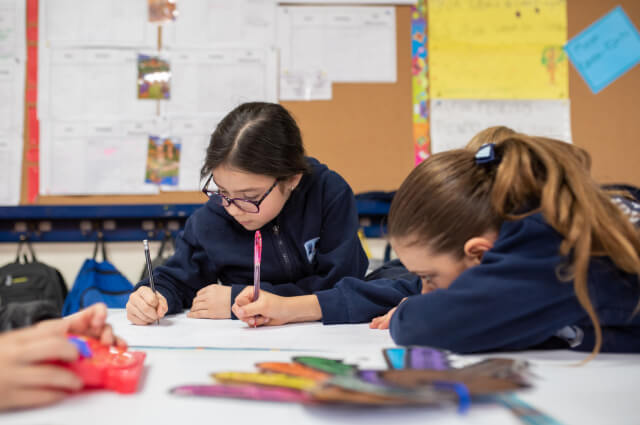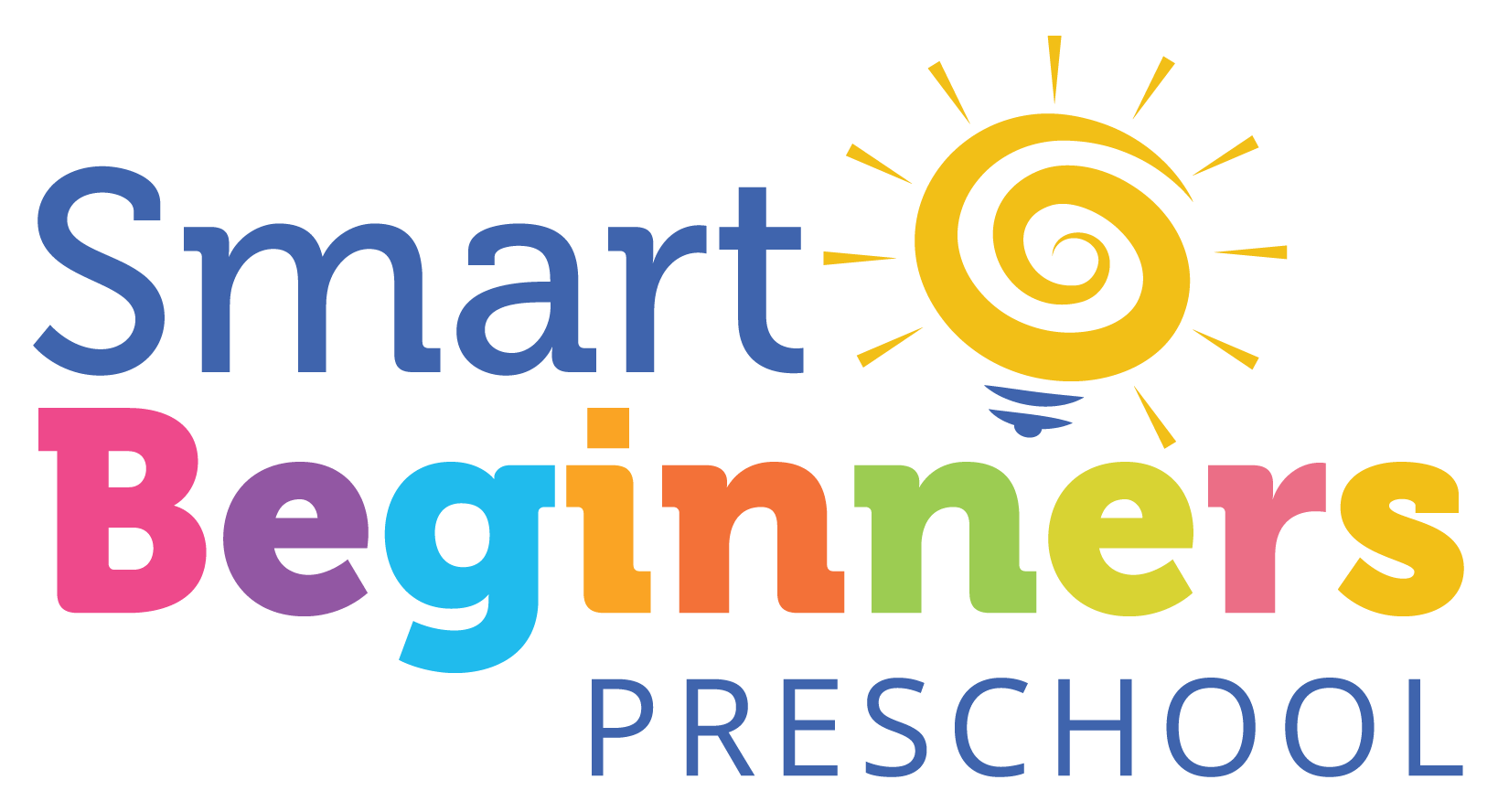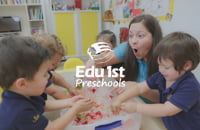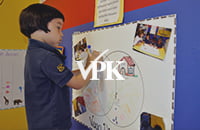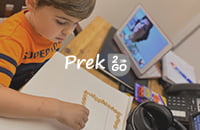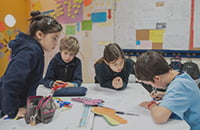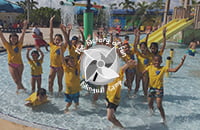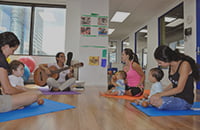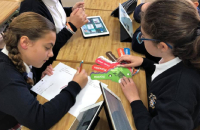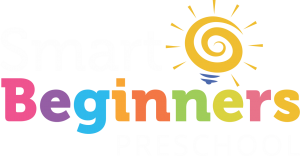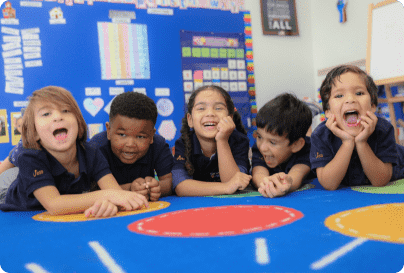
Programs
Our programs create warm and engaging Cultures of Thinking for children 3 months to 8 years to thrive towards passionate, autonomous learners capable of building happy, balanced, and meaningful lives for themselves. We follow the VESS curriculum, a holistic educational model approved by the Florida School Readiness Program and certified by the Department of Neuroeducation at the University of Barcelona.
VESS is carefully crafted to utilize research-based strategies during play to go beyond targeting developmental stages and nurturing important mind habits and thinking skills: Critical thinking, innovation, grit, a scientific mindset, music and art appreciation, bilingualism, and emotional intelligence.
Preschool
Our Preschool Program brings the world into the classroom!
Every detail, from our strategic classroom distribution, the Language of Thinking our educators use, to the exciting learning opportunities we create, is carefully crafted to engage curious minds in awing experiences that lead them to want to know more and to think deeply.
We nurture life-long curiosity and cultivate children’s innate love for learning in a diverse, bilingual environment that responds to children’s interests and developmental stage.
Now implementing new COVID-19 safety procedures based on DCF and medical experts’ recommendations.
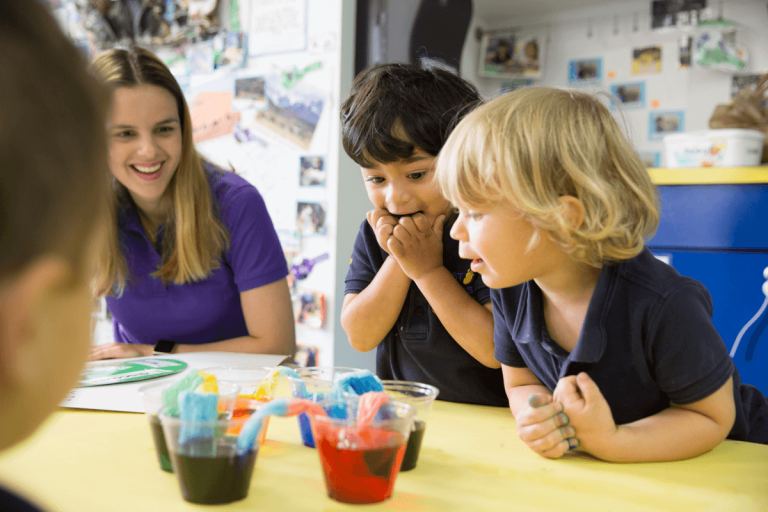
- Infants
- Toddlers
- Twos
- Threes
- PK - VPK
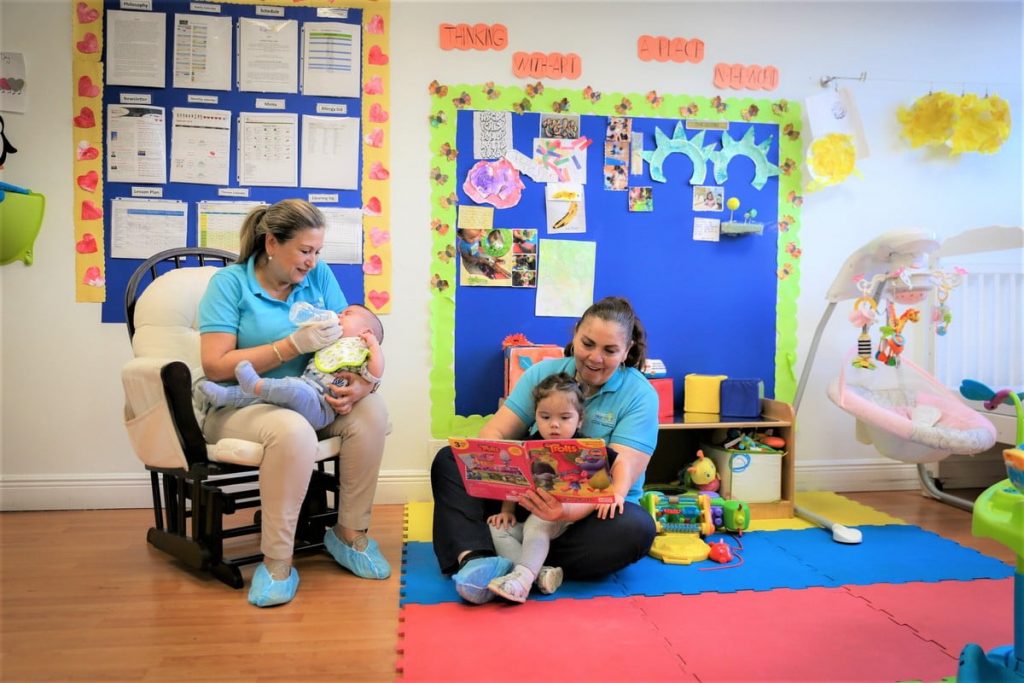
Infants 3 months - 12 months
Our Infants program prioritizes affection, personalized care, daily multi sensory experiences and a safe but exciting space for discovery, providing a complete environment for babies to thrive and be happy in. Our experienced educators understand that emotional safety comes first for babies, and the importance of respecting each baby’s unique routine and rhythm. Our teachers compliment warmth and fun with rich Thinking Language during play that assure babies wholesome development into autonomous little learners.
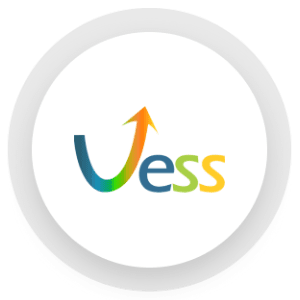

Inquisitiveness

Holistic Development

Scientific mindset

Higher-level thinking

Innovation & Creativity

Citizenship

Learning autonomy
Inquisitiveness
A key goal of our educational program is to nurture autonomous, life long learners, because learning autonomy has been proven to be a key determinant of life success. Learning autonomy starts with sparking curiosity and inquisitiveness, from birth! How do we promote inquisitiveness in toddlers?
- Toddlers are active participants of their classrooms and have a say about the topics to explore – teachers observe and listen carefully, adapting their planned experiences to their preferences
- The Surprise Factor – a neuroscience-proven strategy that focuses on presenting experiences to children in an unexpected and exciting way that invites them to want to explore
- Respecting children’s process and celebrating risk taking: we encourage toddlers to explore at their own pace, plan with their preferences in mind and praise trying something hard or new.
“Surprising a child with a fascinating opportunity to explore generates engagement and emotion, getting the brain ready to really comprehend”, explains Ms. Aura, Edu1st teacher of 15 years
Inquisitiveness

A key goal of our educational program is to nurture autonomous, life long learners, because learning autonomy has been proven to be a key determinant of life success. Learning autonomy starts with sparking curiosity and inquisitiveness, from birth! How do we promote inquisitiveness in toddlers?
- Toddlers are active participants of their classrooms and have a say about the topics to explore – teachers observe and listen carefully, adapting their planned experiences to their preferences
- The Surprise Factor – a neuroscience-proven strategy that focuses on presenting experiences to children in an unexpected and exciting way that invites them to want to explore
- Respecting children’s process and celebrating risk taking: we encourage toddlers to explore at their own pace, plan with their preferences in mind and praise trying something hard or new.
“Surprising a child with a fascinating opportunity to explore generates engagement and emotion, getting the brain ready to really comprehend”, explains Ms. Aura, Edu1st teacher of 15 years
Holistic Development
We consider all chidren as unique individuals with multiple developmental needs. We focus on developing the whole child to his or her unique potential. Every experience is a learning experience carefully crafted by our teachers. We focus on multi-sensory exploration, which naturally develops your child holistically. We use a monthly artist, country and “unit of inquiry” to bring the world to the classroom through novel experiences that are exciting to our toddlers, and covers multiple developmental areas simultaneously: mathematical thinking, communication, scientific exploration, and art, as well as emotional education, thinking skills, our VESS Values, and motor skills.
Our Enrichment classes of Yoga, P.E. and Music further promote whole-child development through an area expert.
Holistic Development

We consider all chidren as unique individuals with multiple developmental needs. We focus on developing the whole child to his or her unique potential. Every experience is a learning experience carefully crafted by our teachers. We focus on multi-sensory exploration, which naturally develops your child holistically. We use a monthly artist, country and “unit of inquiry” to bring the world to the classroom through novel experiences that are exciting to our toddlers, and covers multiple developmental areas simultaneously: mathematical thinking, communication, scientific exploration, and art, as well as emotional education, thinking skills, our VESS Values, and motor skills.
Our Enrichment classes of Yoga, P.E. and Music further promote whole-child development through an area expert.
Scientific mindset
Toddlers are in constant discovery of how the world works. With a school environment that values children’s questions about the world comes an opportunity to promote a scientific mindset. Teachers actively observe our toddlers’ interests, plan experiences accordingly and guide them to explore these through a multitude of strategies that develop advanced scientific and mathematical skills. Scientific exploration also teach children about risk taking, persistence, teamwork, careful observation, and objectivity. Sensory exploration in our classroom is a daily experience!
- The Wheel of Wonder – an age-appropriate version of the scientific method that guides chuildren through a series of steps during an experiment: I wonder; I think; I try; I observe; I record; I discover.
- Thinking Routines – such as our “X routine”, which asks children to compare materials through their senses
- Weekly Cooking and STEM projects – that are planned based on toddlers’ interests
Scientific mindset

Toddlers are in constant discovery of how the world works. With a school environment that values children’s questions about the world comes an opportunity to promote a scientific mindset. Teachers actively observe our toddlers’ interests, plan experiences accordingly and guide them to explore these through a multitude of strategies that develop advanced scientific and mathematical skills. Scientific exploration also teach children about risk taking, persistence, teamwork, careful observation, and objectivity. Sensory exploration in our classroom is a daily experience!
- The Wheel of Wonder – an age-appropriate version of the scientific method that guides chuildren through a series of steps during an experiment: I wonder; I think; I try; I observe; I record; I discover.
- Thinking Routines – such as our “X routine”, which asks children to compare materials through their senses
- Weekly Cooking and STEM projects – that are planned based on toddlers’ interests
Higher-level thinking
Our VESS curriculum fosters development through strategiies that promote higher level thinking skills.
Higher-level thinking refers to our ability to do certain mental processes more efficiently, making us better learners. This ability is fostered by developing what neuro-scientists have called Habits of Mind – a mental process that, with practice, we do routinely and naturally, turning it into a mental habit. The VESS curriculum develops 17 Habits of Mind in children. Some of these include Inquire, Innovate, Consider Perspectives, Manage Impulsivity, Reflect to Learn, Synthesize, Predict, amongst many others.
The first aspect of developing higher-level thinking is a DESIRE TO LEARN, so that our first goal is to foster excitement for learning in children.
Once children are excited to know more, our teachers use neuroscience-proven Thinking Strategies to ask deep questions and get children’s thinking going. Doing this all day, every day, creates higher-level thinking routines that lead to children’s development of our Habits of Mind, and a true ability to be better thinkers and learners.
Higher-level thinking

Our VESS curriculum fosters development through strategiies that promote higher level thinking skills.
Higher-level thinking refers to our ability to do certain mental processes more efficiently, making us better learners. This ability is fostered by developing what neuro-scientists have called Habits of Mind – a mental process that, with practice, we do routinely and naturally, turning it into a mental habit. The VESS curriculum develops 17 Habits of Mind in children. Some of these include Inquire, Innovate, Consider Perspectives, Manage Impulsivity, Reflect to Learn, Synthesize, Predict, amongst many others.
The first aspect of developing higher-level thinking is a DESIRE TO LEARN, so that our first goal is to foster excitement for learning in children.
Once children are excited to know more, our teachers use neuroscience-proven Thinking Strategies to ask deep questions and get children’s thinking going. Doing this all day, every day, creates higher-level thinking routines that lead to children’s development of our Habits of Mind, and a true ability to be better thinkers and learners.
Innovation & Creativity
Creativity and Innovation are at the core of the VESS educational approach. Every moment and learning experience focuses on promoting creativity.Through our Artist of the Month, for example,toddlers explore artists’ stories, techniques, and how they use colors, shapes and lines uniquely to express their emotions. Our goal is to inspire our toddlers to express through art, innovating their own art techniques and ways of telling us their stories.
In our classrooms, children have access throughout the classroom to art and science materials that they can create with, and are heard when proposing new ideas. Developing children’s citizenship, inquisitiveness, scientific thinking and learning autonomy (see other sections) fosters innovation as children feel capable of contributing in their community.
Innovation & Creativity

Creativity and Innovation are at the core of the VESS educational approach. Every moment and learning experience focuses on promoting creativity.Through our Artist of the Month, for example,toddlers explore artists’ stories, techniques, and how they use colors, shapes and lines uniquely to express their emotions. Our goal is to inspire our toddlers to express through art, innovating their own art techniques and ways of telling us their stories.
In our classrooms, children have access throughout the classroom to art and science materials that they can create with, and are heard when proposing new ideas. Developing children’s citizenship, inquisitiveness, scientific thinking and learning autonomy (see other sections) fosters innovation as children feel capable of contributing in their community.
Citizenship
Toddler years are the foundation to instill in children the habits and values needed to excel in a global society
Toddlers in our school are seen as active participants of our community and global citizens. our teachers focus on making them participant of classroom responsibilities, assign roles, and encourage teamwork – whether it’s cleaning tables after lunch or passing out the placemats, we learn about community through our daily interactions as collaborators.
Our monthly country and monthly unit expose children to the inmensity of our world, increasing their awareness of how others live and think.
Citizenship

Toddler years are the foundation to instill in children the habits and values needed to excel in a global society
Toddlers in our school are seen as active participants of our community and global citizens. our teachers focus on making them participant of classroom responsibilities, assign roles, and encourage teamwork – whether it’s cleaning tables after lunch or passing out the placemats, we learn about community through our daily interactions as collaborators.
Our monthly country and monthly unit expose children to the inmensity of our world, increasing their awareness of how others live and think.
Learning autonomy
Learning autonomy refers to the skills and dispositions needed to be independent in one’s capacity to learn new things. It is seen by neuroscientists as a key determinant of life-long success and academic success, and it’s development starts at birth. the VESS educational approach focuses on developing children’s learning autonomy to be efficient learners for life.
We focus first on nurturing children’s love for learning – the first step for becoming an autonomous learner – through crafting learning experiences that are meaningful, surprising and fun We use advanced thinking language in our daily interactions to promote higher-level thinking and embeed this language in children’s thinking process
Learning autonomy

Learning autonomy refers to the skills and dispositions needed to be independent in one’s capacity to learn new things. It is seen by neuroscientists as a key determinant of life-long success and academic success, and it’s development starts at birth. the VESS educational approach focuses on developing children’s learning autonomy to be efficient learners for life.
We focus first on nurturing children’s love for learning – the first step for becoming an autonomous learner – through crafting learning experiences that are meaningful, surprising and fun We use advanced thinking language in our daily interactions to promote higher-level thinking and embeed this language in children’s thinking process
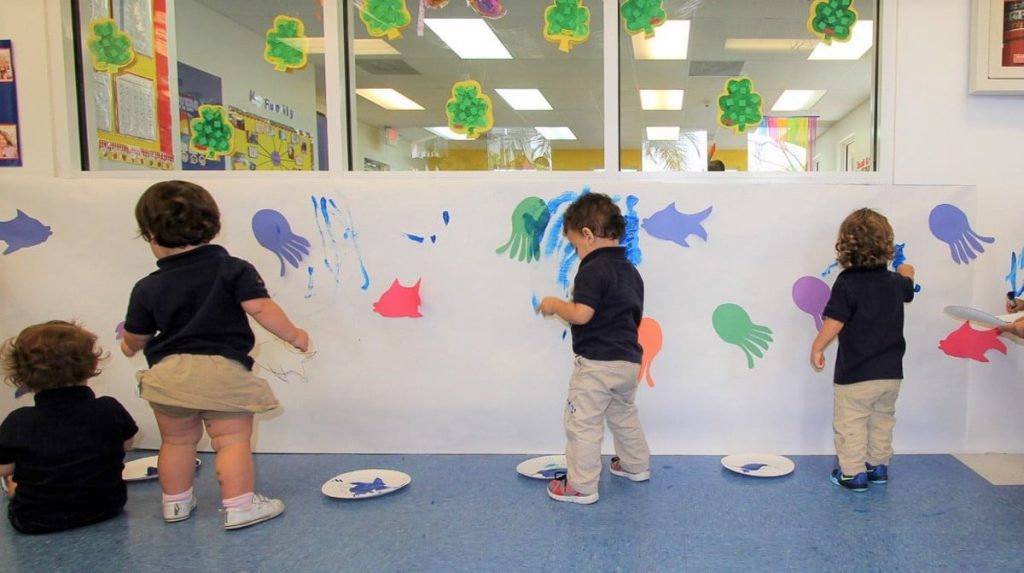
Toddlers
Your once baby is now a Toddler, eager for exploration, independence, and self-expression. An environment that is warm, challenging, safe, exciting and that fosters autonomy and self-esteem is crucial!
Their imagination is at its peak and should be encouraged. This is an important time to challenge their gross motor skills and to develop important cognitive functions.
Our Toddler Program is strategically designed to captivate Toddlers’ innate curiosity and imagination while promoting autonomy. While our hands-on sensory activities surprise them daily and encourage them to explore the world through play, our Thinking Strategies help them comprehend it.
Our experienced educators create a warm environment that prioritizes emotional safety, design a physical space that promotes autonomous exploration; plan exciting activities that surprise Toddlers daily, and use VESS Thinking Strategies to promote deep thinking.


Inquisitiveness

Holistic Development

Scientific mindset

Higher-level thinking

Innovation & Creativity

Citizenship

Learning autonomy
Inquisitiveness
A key goal of our educational program is to nurture autonomous, life long learners, because learning autonomy has been proven to be a key determinant of life success. Learning autonomy starts with sparking curiosity and inquisitiveness, from birth! How do we promote inquisitiveness in toddlers?
- Toddlers are active participants of their classrooms and have a say about the topics to explore – teachers observe and listen carefully, adapting their planned experiences to their preferences
- The Surprise Factor – a neuroscience-proven strategy that focuses on presenting experiences to children in an unexpected and exciting way that invites them to want to explore
- Respecting children’s process and celebrating risk taking: we encourage toddlers to explore at their own pace, plan with their preferences in mind and praise trying something hard or new.
“Surprising a child with a fascinating opportunity to explore generates engagement and emotion, getting the brain ready to really comprehend”, explains Ms. Aura, Edu1st teacher of 15 years
Inquisitiveness

A key goal of our educational program is to nurture autonomous, life long learners, because learning autonomy has been proven to be a key determinant of life success. Learning autonomy starts with sparking curiosity and inquisitiveness, from birth! How do we promote inquisitiveness in toddlers?
- Toddlers are active participants of their classrooms and have a say about the topics to explore – teachers observe and listen carefully, adapting their planned experiences to their preferences
- The Surprise Factor – a neuroscience-proven strategy that focuses on presenting experiences to children in an unexpected and exciting way that invites them to want to explore
- Respecting children’s process and celebrating risk taking: we encourage toddlers to explore at their own pace, plan with their preferences in mind and praise trying something hard or new.
“Surprising a child with a fascinating opportunity to explore generates engagement and emotion, getting the brain ready to really comprehend”, explains Ms. Aura, Edu1st teacher of 15 years
Holistic Development
We consider all chidren as unique individuals with multiple developmental needs. We focus on developing the whole child to his or her unique potential. Every experience is a learning experience carefully crafted by our teachers. We focus on multi-sensory exploration, which naturally develops your child holistically. We use a monthly artist, country and “unit of inquiry” to bring the world to the classroom through novel experiences that are exciting to our toddlers, and covers multiple developmental areas simultaneously: mathematical thinking, communication, scientific exploration, and art, as well as emotional education, thinking skills, our VESS Values, and motor skills.
Our Enrichment classes of Yoga, P.E. and Music further promote whole-child development through an area expert.
Holistic Development

We consider all chidren as unique individuals with multiple developmental needs. We focus on developing the whole child to his or her unique potential. Every experience is a learning experience carefully crafted by our teachers. We focus on multi-sensory exploration, which naturally develops your child holistically. We use a monthly artist, country and “unit of inquiry” to bring the world to the classroom through novel experiences that are exciting to our toddlers, and covers multiple developmental areas simultaneously: mathematical thinking, communication, scientific exploration, and art, as well as emotional education, thinking skills, our VESS Values, and motor skills.
Our Enrichment classes of Yoga, P.E. and Music further promote whole-child development through an area expert.
Scientific mindset
Toddlers are in constant discovery of how the world works. With a school environment that values children’s questions about the world comes an opportunity to promote a scientific mindset. Teachers actively observe our toddlers’ interests, plan experiences accordingly and guide them to explore these through a multitude of strategies that develop advanced scientific and mathematical skills. Scientific exploration also teach children about risk taking, persistence, teamwork, careful observation, and objectivity. Sensory exploration in our classroom is a daily experience!
- The Wheel of Wonder – an age-appropriate version of the scientific method that guides chuildren through a series of steps during an experiment: I wonder; I think; I try; I observe; I record; I discover.
- Thinking Routines – such as our “X routine”, which asks children to compare materials through their senses
- Weekly Cooking and STEM projects – that are planned based on toddlers’ interests
Scientific mindset

Toddlers are in constant discovery of how the world works. With a school environment that values children’s questions about the world comes an opportunity to promote a scientific mindset. Teachers actively observe our toddlers’ interests, plan experiences accordingly and guide them to explore these through a multitude of strategies that develop advanced scientific and mathematical skills. Scientific exploration also teach children about risk taking, persistence, teamwork, careful observation, and objectivity. Sensory exploration in our classroom is a daily experience!
- The Wheel of Wonder – an age-appropriate version of the scientific method that guides chuildren through a series of steps during an experiment: I wonder; I think; I try; I observe; I record; I discover.
- Thinking Routines – such as our “X routine”, which asks children to compare materials through their senses
- Weekly Cooking and STEM projects – that are planned based on toddlers’ interests
Higher-level thinking
Our VESS curriculum fosters development through strategiies that promote higher level thinking skills.
Higher-level thinking refers to our ability to do certain mental processes more efficiently, making us better learners. This ability is fostered by developing what neuro-scientists have called Habits of Mind – a mental process that, with practice, we do routinely and naturally, turning it into a mental habit. The VESS curriculum develops 17 Habits of Mind in children. Some of these include Inquire, Innovate, Consider Perspectives, Manage Impulsivity, Reflect to Learn, Synthesize, Predict, amongst many others.
The first aspect of developing higher-level thinking is a DESIRE TO LEARN, so that our first goal is to foster excitement for learning in children.
Once children are excited to know more, our teachers use neuroscience-proven Thinking Strategies to ask deep questions and get children’s thinking going. Doing this all day, every day, creates higher-level thinking routines that lead to children’s development of our Habits of Mind, and a true ability to be better thinkers and learners.
Higher-level thinking

Our VESS curriculum fosters development through strategiies that promote higher level thinking skills.
Higher-level thinking refers to our ability to do certain mental processes more efficiently, making us better learners. This ability is fostered by developing what neuro-scientists have called Habits of Mind – a mental process that, with practice, we do routinely and naturally, turning it into a mental habit. The VESS curriculum develops 17 Habits of Mind in children. Some of these include Inquire, Innovate, Consider Perspectives, Manage Impulsivity, Reflect to Learn, Synthesize, Predict, amongst many others.
The first aspect of developing higher-level thinking is a DESIRE TO LEARN, so that our first goal is to foster excitement for learning in children.
Once children are excited to know more, our teachers use neuroscience-proven Thinking Strategies to ask deep questions and get children’s thinking going. Doing this all day, every day, creates higher-level thinking routines that lead to children’s development of our Habits of Mind, and a true ability to be better thinkers and learners.
Innovation & Creativity
Creativity and Innovation are at the core of the VESS educational approach. Every moment and learning experience focuses on promoting creativity.Through our Artist of the Month, for example,toddlers explore artists’ stories, techniques, and how they use colors, shapes and lines uniquely to express their emotions. Our goal is to inspire our toddlers to express through art, innovating their own art techniques and ways of telling us their stories.
In our classrooms, children have access throughout the classroom to art and science materials that they can create with, and are heard when proposing new ideas. Developing children’s citizenship, inquisitiveness, scientific thinking and learning autonomy (see other sections) fosters innovation as children feel capable of contributing in their community.
Innovation & Creativity

Creativity and Innovation are at the core of the VESS educational approach. Every moment and learning experience focuses on promoting creativity.Through our Artist of the Month, for example,toddlers explore artists’ stories, techniques, and how they use colors, shapes and lines uniquely to express their emotions. Our goal is to inspire our toddlers to express through art, innovating their own art techniques and ways of telling us their stories.
In our classrooms, children have access throughout the classroom to art and science materials that they can create with, and are heard when proposing new ideas. Developing children’s citizenship, inquisitiveness, scientific thinking and learning autonomy (see other sections) fosters innovation as children feel capable of contributing in their community.
Citizenship
Toddler years are the foundation to instill in children the habits and values needed to excel in a global society
Toddlers in our school are seen as active participants of our community and global citizens. our teachers focus on making them participant of classroom responsibilities, assign roles, and encourage teamwork – whether it’s cleaning tables after lunch or passing out the placemats, we learn about community through our daily interactions as collaborators.
Our monthly country and monthly unit expose children to the inmensity of our world, increasing their awareness of how others live and think.
Citizenship

Toddler years are the foundation to instill in children the habits and values needed to excel in a global society
Toddlers in our school are seen as active participants of our community and global citizens. our teachers focus on making them participant of classroom responsibilities, assign roles, and encourage teamwork – whether it’s cleaning tables after lunch or passing out the placemats, we learn about community through our daily interactions as collaborators.
Our monthly country and monthly unit expose children to the inmensity of our world, increasing their awareness of how others live and think.
Learning autonomy
Learning autonomy refers to the skills and dispositions needed to be independent in one’s capacity to learn new things. It is seen by neuroscientists as a key determinant of life-long success and academic success, and it’s development starts at birth. the VESS educational approach focuses on developing children’s learning autonomy to be efficient learners for life.
We focus first on nurturing children’s love for learning – the first step for becoming an autonomous learner – through crafting learning experiences that are meaningful, surprising and fun We use advanced thinking language in our daily interactions to promote higher-level thinking and embeed this language in children’s thinking process
Learning autonomy

Learning autonomy refers to the skills and dispositions needed to be independent in one’s capacity to learn new things. It is seen by neuroscientists as a key determinant of life-long success and academic success, and it’s development starts at birth. the VESS educational approach focuses on developing children’s learning autonomy to be efficient learners for life.
We focus first on nurturing children’s love for learning – the first step for becoming an autonomous learner – through crafting learning experiences that are meaningful, surprising and fun We use advanced thinking language in our daily interactions to promote higher-level thinking and embeed this language in children’s thinking process
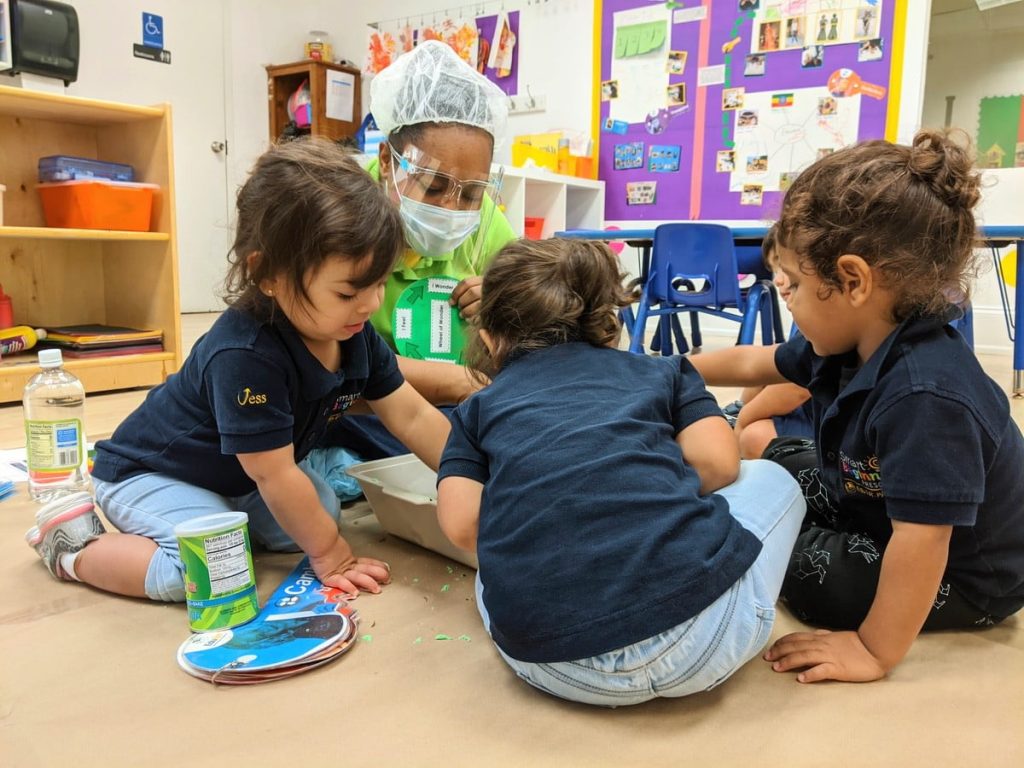
Twos
Two year olds are eager for independence and exploration. Their communication skills develop significantly this year, as does their desire for self expression. “self esteem grows significantliy with their capacity to be independent and do hard things,” explains Ms. Daniela, Two’s Teacher of 10 years.
Our Two’s Program focuses on fostering independence while instilling the values of community and collaboration through classroom routines, involving children as classroom helpers, turn taking and sharing. We work with families to identify potty-training readiness and work as a team with the family when ready. We take advantage of the big feelings that come at this age to validate them and introduce strategies to help them regulate big emotions. As their capacity to understand complex language increases, teachers model a rich vocabulary that fosters higuer-level thinking skills. Two year olds enjoy independent play and dramatic play, which provides us with a great opportunity to foster pre-literacy skills. Through our monthly country, artist and Unit of Inquiry, our teachers bring the world to the classroom and plan hands-on, multi-sensory activities that get children’s thinking going and fosters their inquisitive nature. With this strategy we nurture their scientific and mathematical thinking, motor skills, pre-literacy skills, socio-emotional skills and thinking skills in an age-appropriate and engaging manner that maximizes two year olds’ holistic development.


Inquisitiveness

Holistic Development

Scientific mindset

Higher-level thinking

Innovation & Creativity

Citizenship

Learning autonomy
Inquisitiveness
A key goal of our educational program is to nurture autonomous, life long learners, because learning autonomy has been proven to be a key determinant of life success. Learning autonomy starts with sparking curiosity and inquisitiveness – an intrinsic desire to explore, discover and learn. How do we promote inquisitiveness?
- Two year olds are active participants of their classrooms and have a say about the topics to explore
- The Surprise Factor – a neuroscience-proven strategy that focuses on presenting experiences to children in an unexpected and exciting way that invites them to want to explore
- Respecting children’s process and celebrating risk taking: we encourage children to explore at their own pace, plan with their preferences in mind and praise trying something hard or new.
“Surprising a child with a fascinating opportunity to explore generates engagement and emotion, getting the brain ready to really comprehend”, explains Ms. Aura, Edu1st teacher of 15 years
Inquisitiveness

A key goal of our educational program is to nurture autonomous, life long learners, because learning autonomy has been proven to be a key determinant of life success. Learning autonomy starts with sparking curiosity and inquisitiveness – an intrinsic desire to explore, discover and learn. How do we promote inquisitiveness?
- Two year olds are active participants of their classrooms and have a say about the topics to explore
- The Surprise Factor – a neuroscience-proven strategy that focuses on presenting experiences to children in an unexpected and exciting way that invites them to want to explore
- Respecting children’s process and celebrating risk taking: we encourage children to explore at their own pace, plan with their preferences in mind and praise trying something hard or new.
“Surprising a child with a fascinating opportunity to explore generates engagement and emotion, getting the brain ready to really comprehend”, explains Ms. Aura, Edu1st teacher of 15 years
Holistic Development
We consider all chidren as unique individuals with multiple developmental needs. We focus on developing the whole child to his or her unique potential. Each learning experience is based on our monthly artist, country and unit, and covers multiple developmental areas simultaneously, including mathematical thinking, communication, scientific exploration, and art, but also emotional education, thinking skills, our VESS Values, and motor skills. Doing so presents these areas to children how they appear in the real world, and allows them to understand how all areas relate.
Our Enrichment classes of Yoga, P.E. and Music further promote whole-child development through an expert in the area.
Holistic Development

We consider all chidren as unique individuals with multiple developmental needs. We focus on developing the whole child to his or her unique potential. Each learning experience is based on our monthly artist, country and unit, and covers multiple developmental areas simultaneously, including mathematical thinking, communication, scientific exploration, and art, but also emotional education, thinking skills, our VESS Values, and motor skills. Doing so presents these areas to children how they appear in the real world, and allows them to understand how all areas relate.
Our Enrichment classes of Yoga, P.E. and Music further promote whole-child development through an expert in the area.
Scientific mindset
2 year olds are in constant discovery of how the world works. With a school environment that values children’s questions about the world comes an opportunity to promote a scientific mindset. Teachers actively listen to children’s questions and interests and guide them to explore these through a multitude of strategies that develop advanced scientific and mathematical skills. Scientific processes also teach children about risk taking, persistence, teamwork, careful observation, and objectivity. They also promote pre-literacy skills, as children are eager to express and write about what they have discovered. Some of our strategies used include:
- The Wheel of Wonder – an age-appropriate version of the scientific method that guides chuildren through a series of steps during an experiment: I wonder; I think; I try; I observe; I record; I discover.
- Thinking Routines – such as our “X routine”, which asks children to compare materials through their senses; or “I See, I think, I wonder”, which guides children to reason with evidence about their observations.
- Bar and Pie graphs – introduce children to the concepts of data analysis and data organization
- Weekly Cooking and STEM projects – that are planned based on questions that children ask in the classroom, or previously-expressed interests
by focusing on children’s interests, promoting science, experimentation, mathematics and deep thinking is simple, as children WANT to learn.
Scientific mindset

2 year olds are in constant discovery of how the world works. With a school environment that values children’s questions about the world comes an opportunity to promote a scientific mindset. Teachers actively listen to children’s questions and interests and guide them to explore these through a multitude of strategies that develop advanced scientific and mathematical skills. Scientific processes also teach children about risk taking, persistence, teamwork, careful observation, and objectivity. They also promote pre-literacy skills, as children are eager to express and write about what they have discovered. Some of our strategies used include:
- The Wheel of Wonder – an age-appropriate version of the scientific method that guides chuildren through a series of steps during an experiment: I wonder; I think; I try; I observe; I record; I discover.
- Thinking Routines – such as our “X routine”, which asks children to compare materials through their senses; or “I See, I think, I wonder”, which guides children to reason with evidence about their observations.
- Bar and Pie graphs – introduce children to the concepts of data analysis and data organization
- Weekly Cooking and STEM projects – that are planned based on questions that children ask in the classroom, or previously-expressed interests
by focusing on children’s interests, promoting science, experimentation, mathematics and deep thinking is simple, as children WANT to learn.
Higher-level thinking
Our VESS curriculum fosters development through strategiies that promote higher level thinking skills.
Higher-level thinking refers to our ability to do certain mental processes more efficiently, making us better learners. This ability is fostered by developing what neuro-scientists have called Habits of Mind – a mental process that, with practice, we do routinely and naturally, turning it into a mental habit. The VESS curriculum develops 17 Habits of Mind in children. Some of these include Inquire, Innovate, Consider Perspectives, Manage Impulsivity, Reflect to Learn, Synthesize, Predict, amongst many others.
The first aspect of developing higher-level thinking is a DESIRE TO LEARN, so that our first goal is to foster excitement for learning in children.
Once children are excited to know more, our teachers use neuroscience-proven Thinking Strategies to ask deep questions and get children’s thinking going. Doing this all day, every day, creates higher-level thinking routines that lead to children’s development of our Habits of Mind, and a true ability to be better thinkers and learners.
Higher-level thinking

Our VESS curriculum fosters development through strategiies that promote higher level thinking skills.
Higher-level thinking refers to our ability to do certain mental processes more efficiently, making us better learners. This ability is fostered by developing what neuro-scientists have called Habits of Mind – a mental process that, with practice, we do routinely and naturally, turning it into a mental habit. The VESS curriculum develops 17 Habits of Mind in children. Some of these include Inquire, Innovate, Consider Perspectives, Manage Impulsivity, Reflect to Learn, Synthesize, Predict, amongst many others.
The first aspect of developing higher-level thinking is a DESIRE TO LEARN, so that our first goal is to foster excitement for learning in children.
Once children are excited to know more, our teachers use neuroscience-proven Thinking Strategies to ask deep questions and get children’s thinking going. Doing this all day, every day, creates higher-level thinking routines that lead to children’s development of our Habits of Mind, and a true ability to be better thinkers and learners.
Innovation & Creativity
Creativity and Innovation are at the core of the VESS educational approach. Every moment and learning experience focuses on promoting these abilities, not only in the arts, but in science, mathematics, literacy, and every other developmental area.Through our Artist of the Month, for example, we learn about artists’ stories, techniques, and how they use colors, shapes and lines uniquely to express their emotions, inspiring children to express through art and innovate their own art techniques.
In our classrooms, children write new endings to stories, participate in finding new solutions to everyday problems, have access throughout the classroom to art and science materials that they can create with, and are heard when proposing new ideas. This autonomy in their learning process fosters creativity and innovation.
Innovation & Creativity

Creativity and Innovation are at the core of the VESS educational approach. Every moment and learning experience focuses on promoting these abilities, not only in the arts, but in science, mathematics, literacy, and every other developmental area.Through our Artist of the Month, for example, we learn about artists’ stories, techniques, and how they use colors, shapes and lines uniquely to express their emotions, inspiring children to express through art and innovate their own art techniques.
In our classrooms, children write new endings to stories, participate in finding new solutions to everyday problems, have access throughout the classroom to art and science materials that they can create with, and are heard when proposing new ideas. This autonomy in their learning process fosters creativity and innovation.
Citizenship
“It is amazing to witness how children go from playing by themselves at the beginning of the year, to discussing amongst themselves how to complete an activity together by the end,” – Ms. Daniela, Edu1st. Two’s teacher of 10 years
Two year olds in our school are seen as active participants of our community and global citizens. our teachers focus on making them participant of classroom responsibilities, assign roles, and encourage teamwork – whether it’s cleaning tables after lunch or passing out the placemats, we learn about community through our daily interactions as collaborators.
Our monthly country and monthly unit expose children to the inmensity of our world, increasing their awareness of how others live and think, as teachers guide them to find solutions to problems affecting the world or their direct communities.
An ultimate goal of our educational program is children capable of considering multiple perspectives and adding value wherever they go!
Citizenship

“It is amazing to witness how children go from playing by themselves at the beginning of the year, to discussing amongst themselves how to complete an activity together by the end,” – Ms. Daniela, Edu1st. Two’s teacher of 10 years
Two year olds in our school are seen as active participants of our community and global citizens. our teachers focus on making them participant of classroom responsibilities, assign roles, and encourage teamwork – whether it’s cleaning tables after lunch or passing out the placemats, we learn about community through our daily interactions as collaborators.
Our monthly country and monthly unit expose children to the inmensity of our world, increasing their awareness of how others live and think, as teachers guide them to find solutions to problems affecting the world or their direct communities.
An ultimate goal of our educational program is children capable of considering multiple perspectives and adding value wherever they go!
Learning autonomy
Learning autonomy refers to the skills and dispositions needed to be independent in one’s capacity to learn new things. It is seen by neuroscientists as a key determinant of life-long success and academic success. the VESS educational approach focuses on developing children’s learning autonomy to be efficient learners for life.
We focus first on nurturing children’s love for learning – the first step for becoming an autonomous learner – through making learning meaningful, surprising and fun We use advanced thinking language in our daily interactions to promote higher-level thinking and embeed this language in children’s thinking process
Learning autonomy

Learning autonomy refers to the skills and dispositions needed to be independent in one’s capacity to learn new things. It is seen by neuroscientists as a key determinant of life-long success and academic success. the VESS educational approach focuses on developing children’s learning autonomy to be efficient learners for life.
We focus first on nurturing children’s love for learning – the first step for becoming an autonomous learner – through making learning meaningful, surprising and fun We use advanced thinking language in our daily interactions to promote higher-level thinking and embeed this language in children’s thinking process
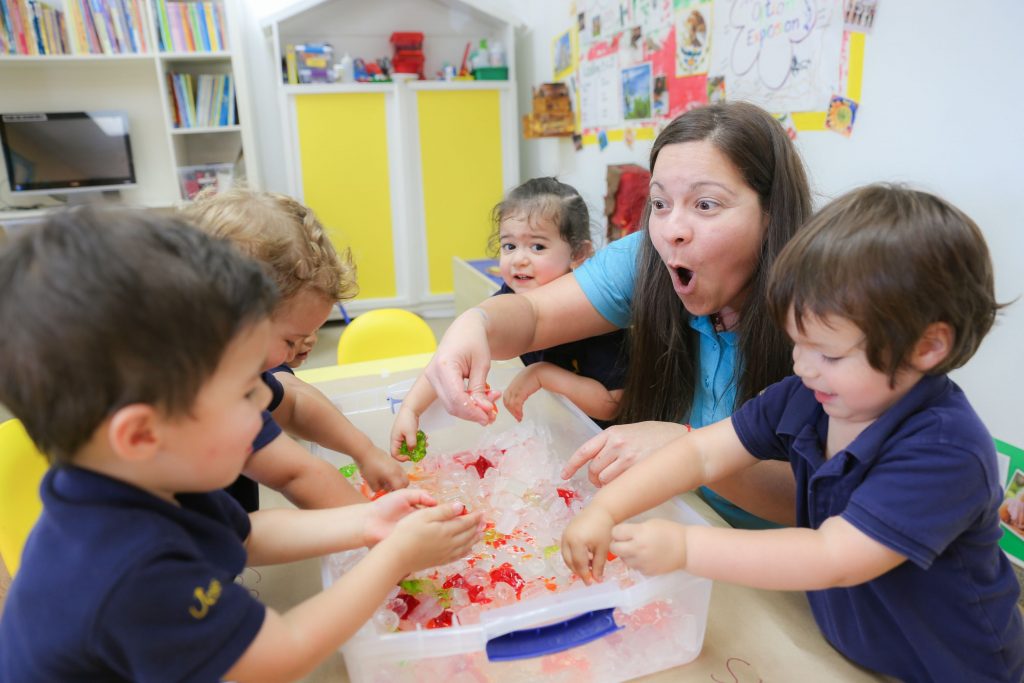
Threes
As your little one turns Three, their inquisitive mind is more active than ever. Important developmental changes occur, including a shift from parallel (or independent) play to shared play, and they have an increased ability for independence, comprehension and verbal expression. Our PK3 Program takes advantage of three year olds’ eagerness for discovery and contribution and places children in an environment built to potentiate each child.
Our PK3 Program continues to focus on whole-child development, so there is a more evident focus on school-readiness skills, yet emotional education, inquisitiveness, scientific thinking, citizenship, creativity and innovation, and high-level thinking skills are equally nurtured.
Though pre-reading and pre-writing skills were fostered in our Two’s program, three year olds are now ready to take them a step further. We work on fine motor skills for writing. We focus on letter phonics (how letters sound), which is proven to facilitate children’s reading and writing process. Mathematical concepts like number sense (the understanding of what a number means and the concept of quantity), patterns, sequences, and geometry in the real world, are all a strong focus of our program towards school readiness, and we do so through exciting and meaningful learning experiences that fosters children’s desires to WANT to learn.
Our Teachers take a “mentor” role, and our small group set-up encourages the sharing of ideas and teamwork. Our main goal is autonomous little learners with the tools and desire to discover the world! Read ahead to learn the details of our VESS educational approach for 3 year olds.


Inquisitiveness

Holistic Development

Scientific mindset

Higher-level thinking

Innovation & Creativity

Citizenship

Learning autonomy
Inquisitiveness
A key goal of our educational program is to nurture autonomous, life long learners, because learning autonomy has been proven to be a key determinant of life success. Learning autonomy starts with sparking curiosity and inquisitiveness – an intrinsic desire to explore, discover and learn. How do we promote inquisitiveness?
- 3 year olds are active participants in the classroom and have a say about the topics to explore
- The Surprise Factor – a neuroscience-proven strategy that focuses on presenting experiences to children in an unexpected way that invites them to want to explore
- Respecting children’s process and celebrating risk taking: we encourage children to explore at their own pace and praise trying something hard or new.
“Surprising a child with a fascinating opportunity to explore generates engagement and emotion, getting the brain ready to really comprehend”, explains Ms. Aura, Edu1st PK3 teacher of 15 years
Inquisitiveness

A key goal of our educational program is to nurture autonomous, life long learners, because learning autonomy has been proven to be a key determinant of life success. Learning autonomy starts with sparking curiosity and inquisitiveness – an intrinsic desire to explore, discover and learn. How do we promote inquisitiveness?
- 3 year olds are active participants in the classroom and have a say about the topics to explore
- The Surprise Factor – a neuroscience-proven strategy that focuses on presenting experiences to children in an unexpected way that invites them to want to explore
- Respecting children’s process and celebrating risk taking: we encourage children to explore at their own pace and praise trying something hard or new.
“Surprising a child with a fascinating opportunity to explore generates engagement and emotion, getting the brain ready to really comprehend”, explains Ms. Aura, Edu1st PK3 teacher of 15 years
Holistic Development
We consider all chidren as unique individuals with multiple developmental needs. We focus on developing the whole child to his or her unique potential. Each learning experience is based on our monthly artist, country and unit, and covers multiple developmental areas simultaneously, including mathematics, literacy, science, and art, but also emotional education, thinking skills, our VESS Values, and motor skills. Doing so presents these areas to children how they appear in the real world, and allows them to understand how all areas relate.
Our Enrichment classes of Yoga, P.E. and Music further promote whole-child development through an expert in the area, and we offer Extracurricular classes in the areas of dance, sports and robotics towards this same purpose.
Holistic Development

We consider all chidren as unique individuals with multiple developmental needs. We focus on developing the whole child to his or her unique potential. Each learning experience is based on our monthly artist, country and unit, and covers multiple developmental areas simultaneously, including mathematics, literacy, science, and art, but also emotional education, thinking skills, our VESS Values, and motor skills. Doing so presents these areas to children how they appear in the real world, and allows them to understand how all areas relate.
Our Enrichment classes of Yoga, P.E. and Music further promote whole-child development through an expert in the area, and we offer Extracurricular classes in the areas of dance, sports and robotics towards this same purpose.
Scientific mindset
At 3 years of age, children increase their capacity to express verbally and pose questions about the world around them. What an exciting time! With a school environment that values children’s questions about the world comes an opportunity to promote a scientific mindset. Teachers guide children to explore their questions through a multitude of strategies that develop scientific and mathematical skills that far surpass school readiness standards. Scientific processes also teach children about risk taking, persistence, teamwork, careful observation, and objectivity. They also promote literacy skills, as children are eager to record their data and what they have discovered. Some of our strategies used include:
- The Wheel of Wonder – an age-appropriate version of the scientific method that guides chuildren through a series of steps during an experiment: I wonder; I think; I try; I observe; I record; I discover.
- Thinking Routines – such as our “X routine”, which asks children to compare materials through their senses; or “I See, I think, I wonder”, which guides children to reason with evidence about their observations.
- Bar and Pie graphs – introduce children to the concepts of data analysis and data organization
- Weekly Cooking and STEM projects – that are planned based on questions that children ask in the classroom, or previously-expressed interests
by focusing on children’s interests, promoting science, experimentation, mathematics and deep thinking is simple, as children WANT to learn.
Scientific mindset

At 3 years of age, children increase their capacity to express verbally and pose questions about the world around them. What an exciting time! With a school environment that values children’s questions about the world comes an opportunity to promote a scientific mindset. Teachers guide children to explore their questions through a multitude of strategies that develop scientific and mathematical skills that far surpass school readiness standards. Scientific processes also teach children about risk taking, persistence, teamwork, careful observation, and objectivity. They also promote literacy skills, as children are eager to record their data and what they have discovered. Some of our strategies used include:
- The Wheel of Wonder – an age-appropriate version of the scientific method that guides chuildren through a series of steps during an experiment: I wonder; I think; I try; I observe; I record; I discover.
- Thinking Routines – such as our “X routine”, which asks children to compare materials through their senses; or “I See, I think, I wonder”, which guides children to reason with evidence about their observations.
- Bar and Pie graphs – introduce children to the concepts of data analysis and data organization
- Weekly Cooking and STEM projects – that are planned based on questions that children ask in the classroom, or previously-expressed interests
by focusing on children’s interests, promoting science, experimentation, mathematics and deep thinking is simple, as children WANT to learn.
Higher-level thinking
Our VESS curriculum teachers academic content and fosters development through strategiies that promote higher level thinking skills.
Higher-level thinking refers to our ability to do certain mental processes more efficiently, making us better learners. This ability is fostered by developing what neuro-scientists have called Habits of Mind – a mental process that, with practice, we do routinely and naturally, turning it into a mental habit. The VESS curriculum develops 17 Habits of Mind in children. Some of these include Inquire, Innovate, Consider Perspectives, Manage Impulsivity, Reflect to Learn, Synthesize, Predict, amongst many others.
The first aspect of developing higher-level thinking is a DESIRE TO LEARN, so that our first goal is to foster excitement for learning in children.
Once children are excited to know more, our teachers use neuroscience-proven Thinking Strategies to ask deep questions and get children’s thinking going. Doing this all day, every day, creates higher-level thinking routines that lead to children’s development of our Habits of Mind, and a true ability to be better thinkers and learners.
Higher-level thinking

Our VESS curriculum teachers academic content and fosters development through strategiies that promote higher level thinking skills.
Higher-level thinking refers to our ability to do certain mental processes more efficiently, making us better learners. This ability is fostered by developing what neuro-scientists have called Habits of Mind – a mental process that, with practice, we do routinely and naturally, turning it into a mental habit. The VESS curriculum develops 17 Habits of Mind in children. Some of these include Inquire, Innovate, Consider Perspectives, Manage Impulsivity, Reflect to Learn, Synthesize, Predict, amongst many others.
The first aspect of developing higher-level thinking is a DESIRE TO LEARN, so that our first goal is to foster excitement for learning in children.
Once children are excited to know more, our teachers use neuroscience-proven Thinking Strategies to ask deep questions and get children’s thinking going. Doing this all day, every day, creates higher-level thinking routines that lead to children’s development of our Habits of Mind, and a true ability to be better thinkers and learners.
Innovation & Creativity
Creativity and Innovation are at the core of the VESS educational approach. Every moment and learning experience focuses on promoting these abilities, not only in the arts, but in science, mathematics, literacy, and every other developmental area. As three year olds focus more evidently in school-readiness skills (pre-reading and writing skills, and mathematics) you will never see a worksheet or photocopy in our classrooms. Instead, children write new endings to stories, document the findings of their classroom experiment in a bar graph, or complete a web map to express their thoughts.
Through our Artist of the Month, children learn about artists’ stories, techniques, and how they use colors, shapes and lines uniquely to express their emotions, inspiring children to express through art and innovate their own art techniques.
Developing children’s citizenship, inquisitiveness, scientific thinking and learning autonomy (see previous sections) fosters innovation as children feel capable of contributing and make part of a community that fosters their ideas.
Innovation & Creativity

Creativity and Innovation are at the core of the VESS educational approach. Every moment and learning experience focuses on promoting these abilities, not only in the arts, but in science, mathematics, literacy, and every other developmental area. As three year olds focus more evidently in school-readiness skills (pre-reading and writing skills, and mathematics) you will never see a worksheet or photocopy in our classrooms. Instead, children write new endings to stories, document the findings of their classroom experiment in a bar graph, or complete a web map to express their thoughts.
Through our Artist of the Month, children learn about artists’ stories, techniques, and how they use colors, shapes and lines uniquely to express their emotions, inspiring children to express through art and innovate their own art techniques.
Developing children’s citizenship, inquisitiveness, scientific thinking and learning autonomy (see previous sections) fosters innovation as children feel capable of contributing and make part of a community that fosters their ideas.
Citizenship
As two year olds turn three, there is a developmental shift from individual play (or parallel play) to shared play. This marks the beginning of an important mindset shift between two and three year olds.
Three year olds are active participants of our school community and are seen as global citizens capable of adding value to our world. As three year olds increase their capacity for independence and desire to contribute, our teachers focus on making them participant of classroom responsibilities, assign roles, and encourage teamwork. Daily group reflection about learning experiences is encouraged, in which teachers guide reflection through questions; children’s voices are heard and everyone participates in problem solving.
Through our monthly country and monthly unit children are exposed to the inmensity of our world, increasing their awareness of how others live and think. Through various Thinking Strategies, teachers guide children to find solutions to problems affecting the world or their direct communities.
An ultimate goal of our educational program is children capable of considering multiple perspectives and adding value wherever they go – children who are Citizens of the World – and 3 year olds are eager for the opportunity!
Citizenship

As two year olds turn three, there is a developmental shift from individual play (or parallel play) to shared play. This marks the beginning of an important mindset shift between two and three year olds.
Three year olds are active participants of our school community and are seen as global citizens capable of adding value to our world. As three year olds increase their capacity for independence and desire to contribute, our teachers focus on making them participant of classroom responsibilities, assign roles, and encourage teamwork. Daily group reflection about learning experiences is encouraged, in which teachers guide reflection through questions; children’s voices are heard and everyone participates in problem solving.
Through our monthly country and monthly unit children are exposed to the inmensity of our world, increasing their awareness of how others live and think. Through various Thinking Strategies, teachers guide children to find solutions to problems affecting the world or their direct communities.
An ultimate goal of our educational program is children capable of considering multiple perspectives and adding value wherever they go – children who are Citizens of the World – and 3 year olds are eager for the opportunity!
Learning autonomy
Learning autonomy refers to the skills and dispositions needed to be independent in one’s capacity to learn new things. It is seen by neuroscientists as a key determinant of life-long success and academic success.
the VESS educational approach focuses not only in learning academic content but in developing the learning autonomy to be efficient learners of future content, wherever they go.
As 3 year olds increase their capacity to express and understand complex information, they are also ready to understand their own thinking process (also known as metacognition)
Our educational program teaches academic content through Thinking Strategies that foster metacognition. These neuroscience-proven strategies include Thinking Routines, Concept Maps, and the Thinking Keys.
“Learning comes pretty easy when children understand how their thinking works” explains Ms. Julia, PK3 and PK4/5 teacher.
Learning autonomy

Learning autonomy refers to the skills and dispositions needed to be independent in one’s capacity to learn new things. It is seen by neuroscientists as a key determinant of life-long success and academic success.
the VESS educational approach focuses not only in learning academic content but in developing the learning autonomy to be efficient learners of future content, wherever they go.
As 3 year olds increase their capacity to express and understand complex information, they are also ready to understand their own thinking process (also known as metacognition)
Our educational program teaches academic content through Thinking Strategies that foster metacognition. These neuroscience-proven strategies include Thinking Routines, Concept Maps, and the Thinking Keys.
“Learning comes pretty easy when children understand how their thinking works” explains Ms. Julia, PK3 and PK4/5 teacher.
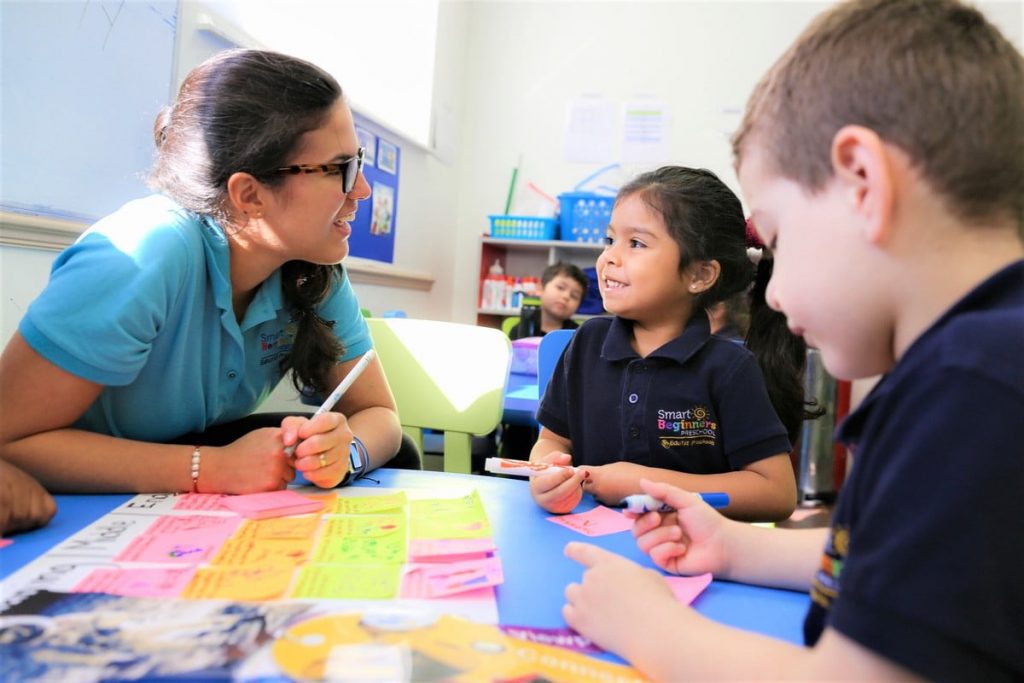
Pk4 - Pk5 (VPK)
Our goals for PK4/5 go beyond preparation for Elementary School and into developing Thinking skills that promote their creativity, out of the box thinking, deep understanding, and problem-solving. We do so by promoting each child’s unique passions and needs in a space with multiple learning setups that respond to various interests and complement this with research-based Thinking Strategies to challenge them intellectually and promote deep comprehension.
We develop autonomous, adaptable kindergarteners with the tools to build fulfilling and balanced lives beyond school.


Inquisitiveness

Holistic Development

Scientific mindset

Higher-level thinking

Innovation & Creativity

Citizenship

Learning autonomy
Inquisitiveness
A key goal of our educational program is to nurture autonomous, life long learners, because learning autonomy has been proven to be a key determinant of academic and life success. Children under our PK4-5 program learn through asking, learn through doing, learn through thinking and learn with eagerness! This nurtures inquisitiveness – an intrinsic desire to explore, discover and learn – that is key to developing learning autonomy. Many strategies are present daily in the classroom towards this purpose. Some include:
- Children are active participants in the classroom and have a say about the topics to study
- The Surprise Factor – a neuroscience-proven strategy that focuses on presenting experiences to children in an unexpected way that invites them to explore it.
“Surprising a child with a fascinating opportunity to explore generates engagement and emotion, getting the brain ready to really comprehend”, explains Ms. Aura, Edu1st teacher of 15 years
Inquisitiveness

A key goal of our educational program is to nurture autonomous, life long learners, because learning autonomy has been proven to be a key determinant of academic and life success. Children under our PK4-5 program learn through asking, learn through doing, learn through thinking and learn with eagerness! This nurtures inquisitiveness – an intrinsic desire to explore, discover and learn – that is key to developing learning autonomy. Many strategies are present daily in the classroom towards this purpose. Some include:
- Children are active participants in the classroom and have a say about the topics to study
- The Surprise Factor – a neuroscience-proven strategy that focuses on presenting experiences to children in an unexpected way that invites them to explore it.
“Surprising a child with a fascinating opportunity to explore generates engagement and emotion, getting the brain ready to really comprehend”, explains Ms. Aura, Edu1st teacher of 15 years
Holistic Development
We consider all chidren as unique individuals with multiple developmental needs. While school readiness is a priority, we focus on developing the whole child to his or her unique potential. Each learning experience is based on our monthly artist, country and unit, and covers multiple developmental areas simultaneously, including mathematics, literacy, science, and art, but also emotional education, thinking skills, our VESS Values, and motor skills. Doing so presents academic areas to children how they appear in the real world, and allows children to understand how all academic areas relate.
Our Enrichment classes of Yoga, P.E. and Music further promote whole-child development through an expert in the area, and we offer Extracurricular classes in the areas of dance, sports and robotics towards this same purpose.
Holistic Development

We consider all chidren as unique individuals with multiple developmental needs. While school readiness is a priority, we focus on developing the whole child to his or her unique potential. Each learning experience is based on our monthly artist, country and unit, and covers multiple developmental areas simultaneously, including mathematics, literacy, science, and art, but also emotional education, thinking skills, our VESS Values, and motor skills. Doing so presents academic areas to children how they appear in the real world, and allows children to understand how all academic areas relate.
Our Enrichment classes of Yoga, P.E. and Music further promote whole-child development through an expert in the area, and we offer Extracurricular classes in the areas of dance, sports and robotics towards this same purpose.
Scientific mindset
Teachers guide children to explore their questions about the world through a multitude of strategies that develop scientific and mathematical skills that far surpass school readiness standards. Scientific processes also teach children about risk taking, persistence, teamworkd, careful observation and objectivity. They promote literacy skills as children are eager to record their data and express what they have discovered. Some of the strategies used to foment scientific thinking include:
The Wheel of Wonder – an age-appropriate version of the scientific method that guides chuildren through a series of steps during an experiment: I wonder; I think; I try; I observe; I record; I discover.
Thinking Routines – such as our “X routine”, which asks children to compare materials through their senses; or “I See, I think, I wonder”, which guides children to reason with evidence about their observations.
Bar and Pie graphs – introduce children to the concepts of data analysis and data organization Weekly Cooking and STEM projects – that are planned based on questions that children ask in the classroom, or previously-expressed interests
by focusing on children’s interests and the questions they themselves pose, promoting science, experimentation, mathematics and deep thinking is simple, as children WANT to learn.
Scientific mindset

Teachers guide children to explore their questions about the world through a multitude of strategies that develop scientific and mathematical skills that far surpass school readiness standards. Scientific processes also teach children about risk taking, persistence, teamworkd, careful observation and objectivity. They promote literacy skills as children are eager to record their data and express what they have discovered. Some of the strategies used to foment scientific thinking include:
The Wheel of Wonder – an age-appropriate version of the scientific method that guides chuildren through a series of steps during an experiment: I wonder; I think; I try; I observe; I record; I discover.
Thinking Routines – such as our “X routine”, which asks children to compare materials through their senses; or “I See, I think, I wonder”, which guides children to reason with evidence about their observations.
Bar and Pie graphs – introduce children to the concepts of data analysis and data organization Weekly Cooking and STEM projects – that are planned based on questions that children ask in the classroom, or previously-expressed interests
by focusing on children’s interests and the questions they themselves pose, promoting science, experimentation, mathematics and deep thinking is simple, as children WANT to learn.
Higher-level thinking
Our VESS curriculum teachers academic content and fosters development through strategiies that promote higher level thinking skills.
Higher-level thinking refers to our ability to do certain mental processes more efficiently, making us better learners. This ability is fostered by developing what neuro-scientists have called Habits of Mind – a mental process that, with practice, we do routinely and naturally, turning it into a mental habit. The VESS curriculum develops 17 Habits of Mind in children. Some of these include Inquire, Innovate, Consider Perspectives, Manage Impulsivity, Reflect to Learn, Synthesize, Predict, amongst many others.
The first aspect of developing higher-level thinking is a DESIRE TO LEARN, so that our first goal is to foster excitement for learning in children.
Once children are excited to know more, our teachers use neuroscience-proven Thinking Strategies to ask deep questions and get children’s thinking going. Doing this all day, every day, creates higher-level thinking routines that lead to children’s development of our Habits of Mind, and a true ability to be better thinkers and learners.
Higher-level thinking

Our VESS curriculum teachers academic content and fosters development through strategiies that promote higher level thinking skills.
Higher-level thinking refers to our ability to do certain mental processes more efficiently, making us better learners. This ability is fostered by developing what neuro-scientists have called Habits of Mind – a mental process that, with practice, we do routinely and naturally, turning it into a mental habit. The VESS curriculum develops 17 Habits of Mind in children. Some of these include Inquire, Innovate, Consider Perspectives, Manage Impulsivity, Reflect to Learn, Synthesize, Predict, amongst many others.
The first aspect of developing higher-level thinking is a DESIRE TO LEARN, so that our first goal is to foster excitement for learning in children.
Once children are excited to know more, our teachers use neuroscience-proven Thinking Strategies to ask deep questions and get children’s thinking going. Doing this all day, every day, creates higher-level thinking routines that lead to children’s development of our Habits of Mind, and a true ability to be better thinkers and learners.
Innovation & Creativity
Creativity and Innovation are at the core of the VESS educational approach. Every moment and learning experience focuses on promoting these abilities, not only in the arts, but in science, mathematics, literacy, and every other developmental area. While our PK4-5 program focuses strongly in school-readiness skills (pre-reading and writing skills, and mathematics) you will never see a worksheet or photocopy in our classrooms. Instead, children write new endings to stories, document the findings of their classroom experiment in a bar graph, or complete a web map to express their thoughts.
Through our Artist of the Month, for example, we learn about artists’ stories, techniques, and how they use colors, shapes and lines uniquely to express their emotions, inspiring children to express through art, innovating their own art techniques and ways of telling us their stories.
Developing children’s citizenship, inquisitiveness, scientific thinking and learning autonomy (see previous sections) fosters innovation as children feel capable of contributing and make part of a community that fosters their ideas.
Innovation & Creativity

Creativity and Innovation are at the core of the VESS educational approach. Every moment and learning experience focuses on promoting these abilities, not only in the arts, but in science, mathematics, literacy, and every other developmental area. While our PK4-5 program focuses strongly in school-readiness skills (pre-reading and writing skills, and mathematics) you will never see a worksheet or photocopy in our classrooms. Instead, children write new endings to stories, document the findings of their classroom experiment in a bar graph, or complete a web map to express their thoughts.
Through our Artist of the Month, for example, we learn about artists’ stories, techniques, and how they use colors, shapes and lines uniquely to express their emotions, inspiring children to express through art, innovating their own art techniques and ways of telling us their stories.
Developing children’s citizenship, inquisitiveness, scientific thinking and learning autonomy (see previous sections) fosters innovation as children feel capable of contributing and make part of a community that fosters their ideas.
Citizenship
Children are active participants of our school community and are seen as global citizens capable of adding value to our world. Our PK4-5 program strongly encourages independence, collaboration, and friendship, crucial skills for life in elementary school. Our teachers focus on making them participant of classroom responsibilities, assign roles, and encourage teamwork. Daily group reflection about learning experiences is encouraged, in which teachers guide reflection through questions; children’s voices are heard and everyone participates in problem solving.
Through our “country of the month” and “unit of the month” children are exposed to the inmensity of our world, increasing their awareness of how others live and think, promoting empathy, tolerance, and consideration of multiple perspectives. Through various Thinking Strategies, teachers guide children to find solutions to problems affecting the world or their direct communities.
An ultimate goal of our educational program is children capable of considering multiple perspectives and adding value wherever they go – children who are Citizens of the World, and therefore very ready to take over Elementary School!
Citizenship

Children are active participants of our school community and are seen as global citizens capable of adding value to our world. Our PK4-5 program strongly encourages independence, collaboration, and friendship, crucial skills for life in elementary school. Our teachers focus on making them participant of classroom responsibilities, assign roles, and encourage teamwork. Daily group reflection about learning experiences is encouraged, in which teachers guide reflection through questions; children’s voices are heard and everyone participates in problem solving.
Through our “country of the month” and “unit of the month” children are exposed to the inmensity of our world, increasing their awareness of how others live and think, promoting empathy, tolerance, and consideration of multiple perspectives. Through various Thinking Strategies, teachers guide children to find solutions to problems affecting the world or their direct communities.
An ultimate goal of our educational program is children capable of considering multiple perspectives and adding value wherever they go – children who are Citizens of the World, and therefore very ready to take over Elementary School!
Learning autonomy
Learning autonomy refers to the skills and dispositions needed to be independent in one’s capacity to learn new things. It is seen by neuroscientists as a key determinant of life-long success and academic success in school. the VESS educational approach focuses not only in learning academic content but in developing the learning autonomy to be efficient learners of future content, wherever they go.
With an advanced capacity to express and understand more complex information, 4 and 5 year olds are absolutely ready to become aware of their own thinking process (also known as metacognition) if the environment and mentors provide the opportunity with the right strategies.
Our educational program teaches academic content through Thinking Strategies that foster metacognition. These neuroscience-proven strategies include Thinking Routines, Concept Maps, and the Thinking Keys.
“Learning comes pretty easy when children understand how their thinking works” explains Ms. Julia, PK3 and PK4/5 teacher.
Learning autonomy

Learning autonomy refers to the skills and dispositions needed to be independent in one’s capacity to learn new things. It is seen by neuroscientists as a key determinant of life-long success and academic success in school. the VESS educational approach focuses not only in learning academic content but in developing the learning autonomy to be efficient learners of future content, wherever they go.
With an advanced capacity to express and understand more complex information, 4 and 5 year olds are absolutely ready to become aware of their own thinking process (also known as metacognition) if the environment and mentors provide the opportunity with the right strategies.
Our educational program teaches academic content through Thinking Strategies that foster metacognition. These neuroscience-proven strategies include Thinking Routines, Concept Maps, and the Thinking Keys.
“Learning comes pretty easy when children understand how their thinking works” explains Ms. Julia, PK3 and PK4/5 teacher.
Virtual Preschool
Edu1st.PreK 2 Go Online Early Learning Program.
A program designed to support parents in providing a rich and wholesome early learning experience at home for children ages 0-5 years.
We partner with parents to design a thorough learning program for children through carefully-crafted virtual sessions, home activity ideas and parental support, including educational videos, live webinars and one-on-one sessions.
Our program is led by early childhood education professionals and tailored to fit any family’s schedule and needs . We plan a complete and personalized learning program, and follow up on your child’s specific progress and milestones through target setting and progress report sessions.
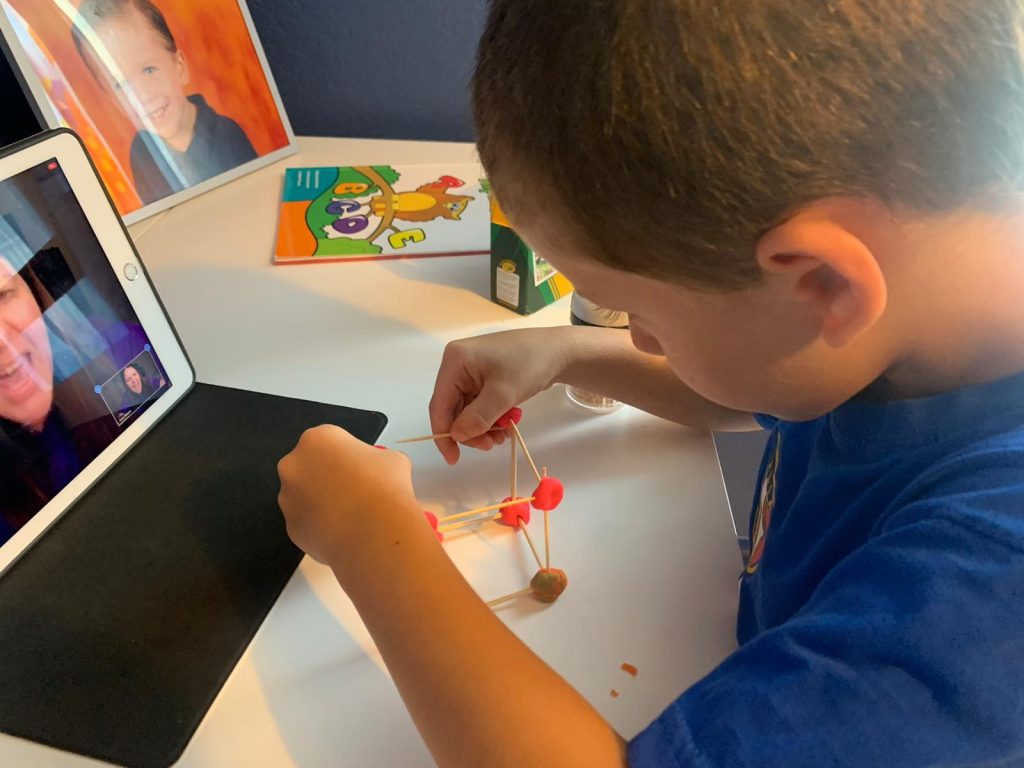
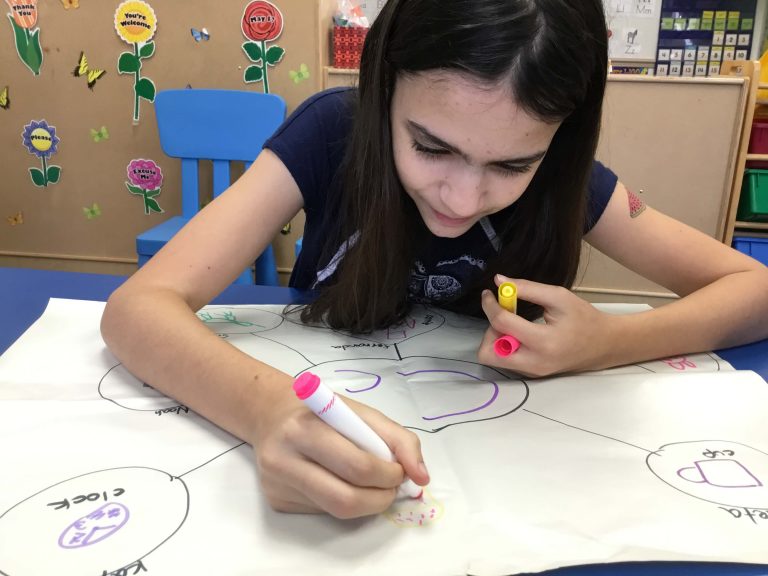
Afterschool
Our After School Program provides Elementary school children with a stimulating and fun environment.
They are assisted with their homework involved in our physical program and will enjoy various supervised activities.
An afternoon snack will be provided for the children attending the program. Transportation to and from the child’s local elementary school is included in the program.
Some classes are offered at an additional charge; please contact the office for more information.
Camps
The Factory of Fun is a bilingual Camp for children 3 months to 8 years, offered during Winter, Spring and Summer months.
Our Factory of Fun provides age-appropriate seasonal activities that immerse children in a variety of topics: wiggle, walk and crawl, down in the deep, high in the sky, wild world, we are one, to name a few, as well as Sports classes, field trips, and special visits.
Weekly themes inspire creativity, challenges, teams, and a different focus on sports and games. All topics engage children in exciting activities that provoke their inquisitiveness and need for discovery; educators complement these activities with our thought-provoking Thinking Strategies that lead children into deep learning about the world.
Our camps are now implementing new COVID-19 safety procedures based on DCF and medical experts’ recommendations.
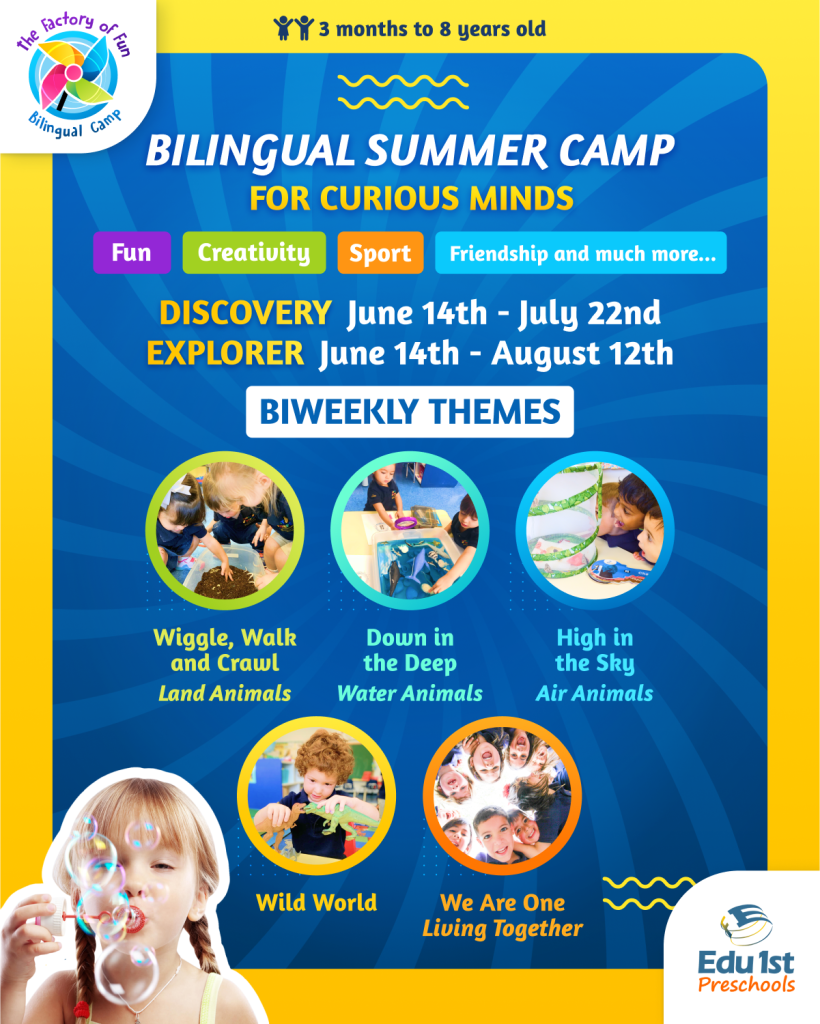
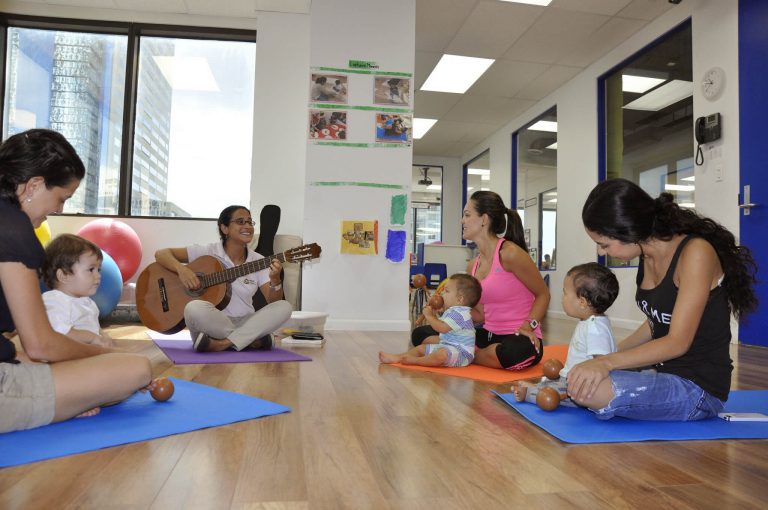
Community Events
We work in partnership with families and commit to a dynamic, innovative, and evolving program based on the latest findings in neuroscience and education, responding to the needs of children in today’s world.
We understand the difficulties of being parents in this century. That is why we are here to support you, guide you, and be your experts, providing all the necessary advice related to your children’s education.
Our environment makes everyone feel safe and at home.
Accordingly, we offer a variety of resources, free for the community such as webinars, workshops, Baby & me classes, Thnikning adventures, and Storytelling, and much more.
It is necessary to reserve your space since we have a limited capacity in each event.
Elementary-Support Program
Our Elementary-Support Program is an extension of our regular school program catered to Elementary School children. We prioritize the highest safety standards in a fun and challenging environment where children socialize, receive professional academic support, and engage in active play with other elementary school-aged children. It takes place Monday through Friday from 8:00 am to 4:00 pm and follows the [Broward County] School Calendar.
Our Program includes:
- Personalized support with schoolwork: Our bilingual professional educators are highly trained in our Florida Approved VESS educational Model.
- Weekly Enrichment Activities: Yoga, Physical Education, and Music Exploration provided every week - Classroom placement and socialization with other elementary-aged children
- - Safety Standards that surpass CDC guidelines for Covid-19 prevention: Our team of health professionals trains and guides us towards the highest Covid-19 prevention protocols:
- All of our staff has tested negative for Covid-19
- Mask and face-shield are used by staff throughout the day
- Multiple staff training by Medical Doctors and Disinfecting Professionals
- 9 students per classroom or less
- Symptom screening at drop off and throughout the day
- Cleaning and disinfection protocols throughout the day
